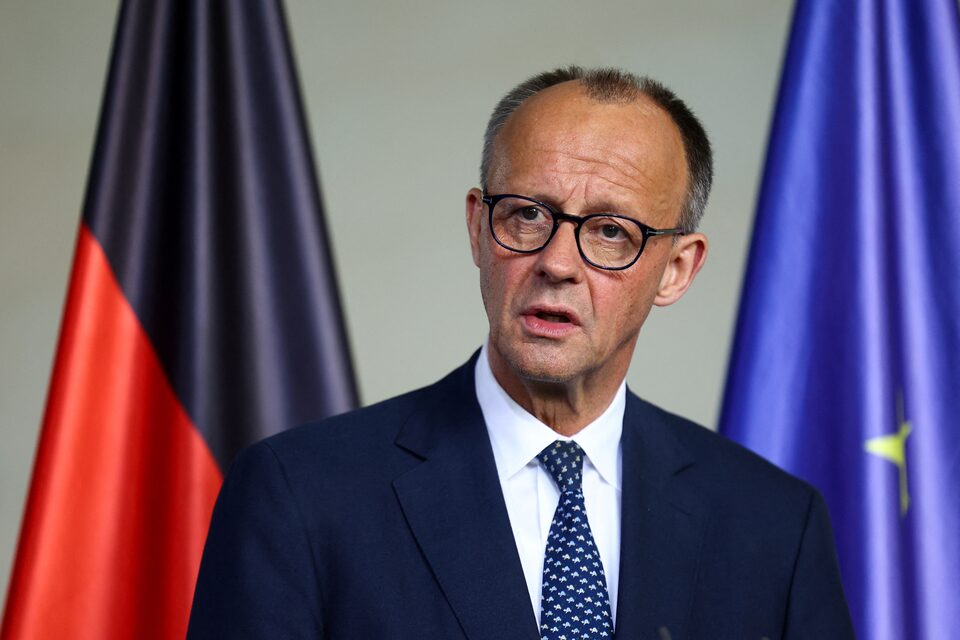The new EU–US trade agreement has sparked major political turbulence across Europe, with France and Germany publicly rejecting the deal brokered by European Commission President Ursula von der Leyen and U.S. President Donald Trump. While designed to avert a deeper transatlantic trade war, the pact has been widely criticized by European leaders who view the compromise as lopsided and detrimental to EU economic interests.
France Calls Deal “Submission”; Germany Warns of Industrial Damage
French Prime Minister François Bayrou delivered one of the harshest critiques, calling the agreement “an act of submission” and “a dark day for Europe” in response to the 15% tariff imposed on the majority of EU exports to the U.S. Bayrou warned that the deal undermines Europe’s sovereignty and sets a precedent for future concessions under American pressure.
German Chancellor Friedrich Merz, though less confrontational, also voiced concern. While describing the pact as “the best result we could hope for,” Merz emphasized that it would inflict serious damage on Germany’s export-heavy industries, particularly the automotive and industrial manufacturing sectors. According to Deutsche Welle, German policymakers are now discussing short-term subsidies to mitigate the impact.
A Controversial Deal to Prevent Escalation
The deal imposes a 15% U.S. tariff on most European goods, including cars, machinery, pharmaceuticals, and chemicals—down from the originally proposed 30% that would have sparked a broader trade war. While the EU managed to secure tariff exemptions in key sectors like aircraft, defense equipment, and clean technology, many leaders argue the compromise went too far.
In exchange, Brussels agreed to purchase $750 billion in U.S. natural gas and defense goods, and to invest an additional $600 billion over the next five years in bilateral infrastructure and energy projects. Von der Leyen defended the deal, saying it preserves peace in transatlantic markets and gives the EU long-term access to critical U.S. exports, especially liquefied natural gas (LNG).
Divided Reactions Among EU Member States
Not all European leaders joined France and Germany in opposing the agreement. Irish Taoiseach Micheál Martin stated that he was “relieved” the bloc had avoided higher tariffs, though he admitted that “the agreement falls short of protecting vulnerable sectors.” However, Martin refused to support direct subsidies to Irish firms, arguing the EU must preserve budget discipline.
Spanish Prime Minister Pedro Sánchez described the pact as a “necessary evil” and said Madrid would “support it without any enthusiasm.” Even EU Commissioner Maroš Šefčovič appeared cautious, labeling the agreement “far from perfect” but “an unavoidable compromise” to maintain unity within the bloc and a functional relationship with Washington.
Business and Industry Respond with Alarm
European business groups have warned that the tariffs, even at 15%, could disrupt supply chains and make EU products less competitive in U.S. markets. The European Automobile Manufacturers’ Association issued a statement criticizing the deal’s lack of carve-outs for EV components and calling for emergency talks to renegotiate the automotive clause.
In the pharmaceutical and semiconductor industries, leaders expressed fears of job losses and investment delays due to reduced demand from U.S. importers. A report from the Financial Times estimated that the European tech sector could lose up to €20 billion annually under the new terms.
Von der Leyen Under Fire
Von der Leyen, who personally negotiated the final text with President Trump, now faces growing scrutiny. European Parliament members from both left- and right-leaning parties have questioned whether she exceeded her authority by offering major energy and defense commitments without consulting national governments.
Despite her insistence that the deal ensures “long-term stability” in EU–US trade, criticism is mounting that she failed to secure strong enough concessions. As Politico noted, the agreement “may have cooled tensions, but at the cost of political harmony within the EU itself.”







